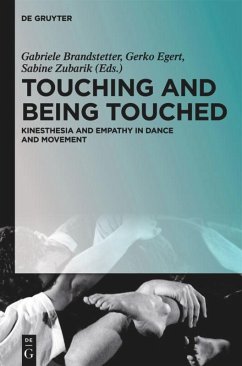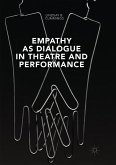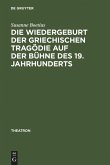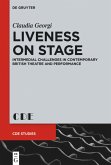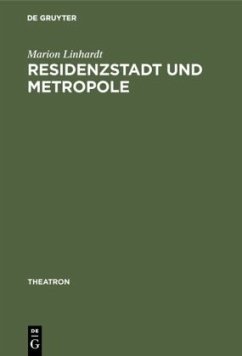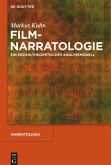Touch is a fundamental element of dance. The (time) forms and contact zones of touch are means of expression both of self-reflexivity and the interaction of the dancers. Liberties and limits, creative possibilities and taboos of touch convey insights into the 'aisthesis' of the different forms of dance: into their dynamics and communicative structure, as well as into the production and regulation of affects.
Touching and Being Touched assembles seventeen interdisciplinary papers focusing on the question of how forms and practices of touch are connected with the evocation of feelings. Are these feelings evoked in different ways in tango, Contact improvisation, European and Japanese contemporary dance? The contributors to this volume (dance, literature, and film scholars as well as philosophers and neuroscientists) provide in-depth discussions of the modes of transfer between touch and being touched. Drawing on the assumptions of various theories of body, emotion, and senses, how can we interpret the processes of tactile touch and of being touched emotionally? Is there a specific spectrum of emotions activated during these processes (within both the spectator and the dancer)? How can the relationship of movement, touch, and emotion be analyzed in relation to kinesthesia and empathy?
Touching and Being Touched assembles seventeen interdisciplinary papers focusing on the question of how forms and practices of touch are connected with the evocation of feelings. Are these feelings evoked in different ways in tango, Contact improvisation, European and Japanese contemporary dance? The contributors to this volume (dance, literature, and film scholars as well as philosophers and neuroscientists) provide in-depth discussions of the modes of transfer between touch and being touched. Drawing on the assumptions of various theories of body, emotion, and senses, how can we interpret the processes of tactile touch and of being touched emotionally? Is there a specific spectrum of emotions activated during these processes (within both the spectator and the dancer)? How can the relationship of movement, touch, and emotion be analyzed in relation to kinesthesia and empathy?

